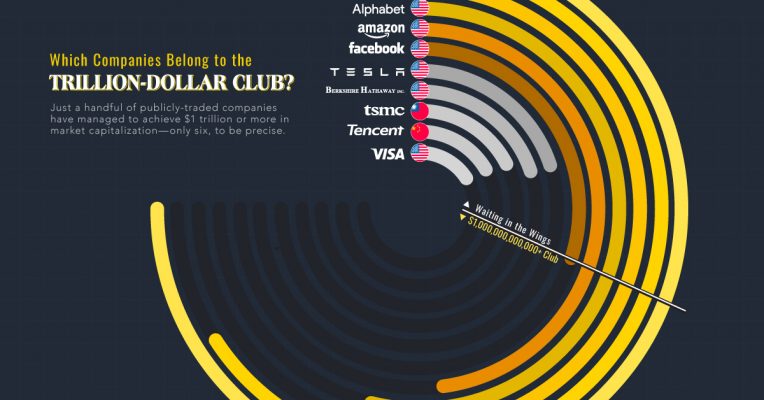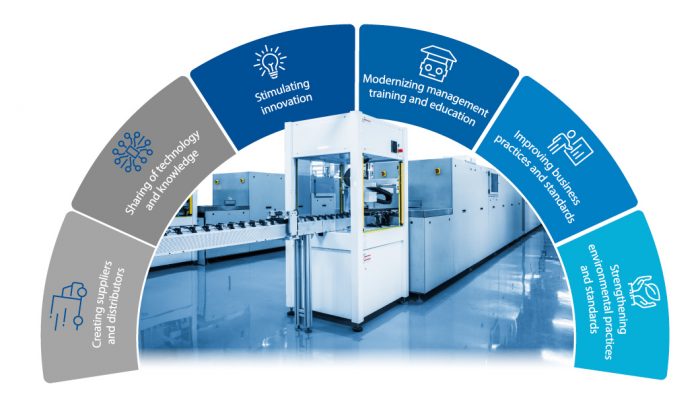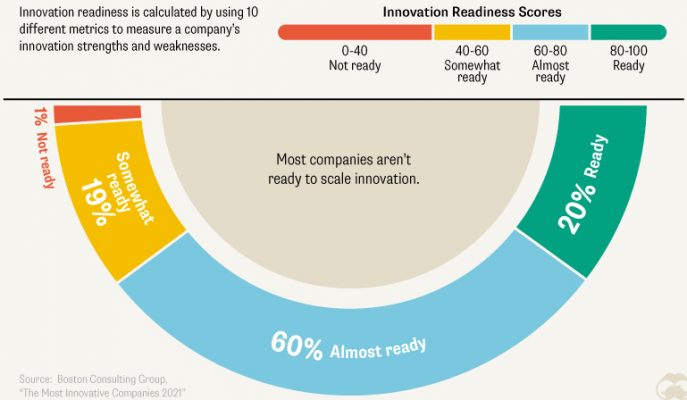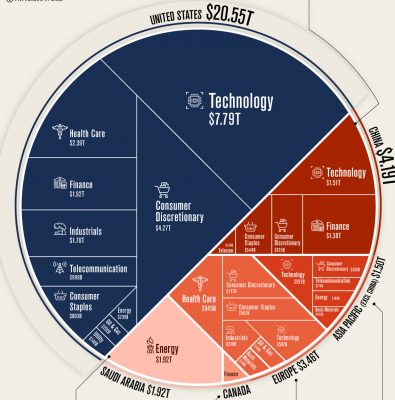Ranked: the Top 50 Most Innovative Companies in 2021
This year has been rife with pandemic-induced changes that have shifted corporate priorities—and yet, innovation has remained a top concern among corporations worldwide.
Using data from the annual ranking done by Boston Consulting Group (BCG) using a poll of 1,600 global innovation professionals, this graphic ranks the top 50 most innovative companies in 2021.
We’ll dig into a few of the leading companies, along with their innovative practices, below.
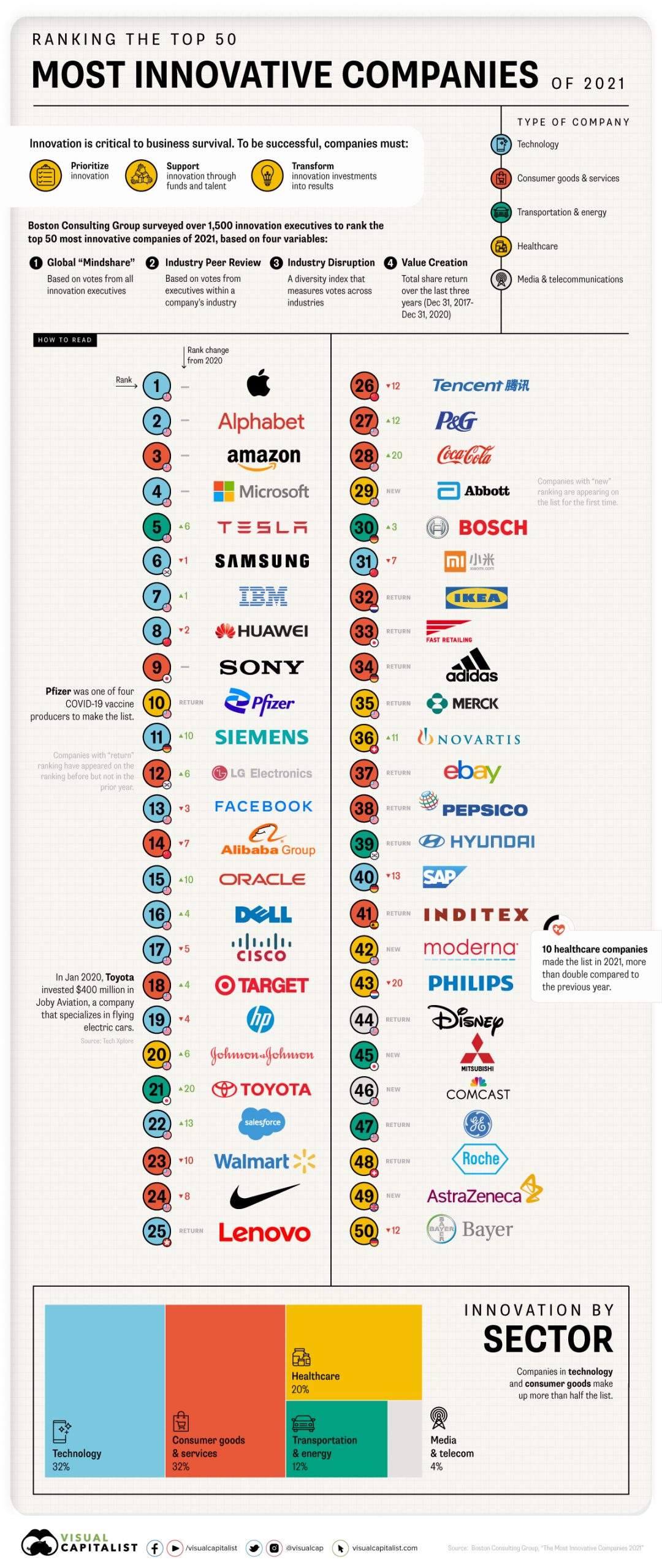
Most Innovative Companies: A Breakdown of the Leaderboard
To create the top 50 innovative company ranking, BCG uses four variables:
- Global “Mindshare”: The number of votes from all innovation executives.
- Industry Peer Review: The number of votes from executives in a company’s industry.
- Industry Disruption: A diversity index to measure votes across industries.
- Value Creation: Total share return.
One company worth touching on is Pfizer, a returnee from previous years that ranked 10th in this year’s ranking. It’s no surprise that Pfizer made the list, considering its instrumental role in the fight against COVID-19. In partnership with BioNTech, Pfizer produced a COVID-19 vaccine in less than a year. This is impressive considering that, historically, vaccine development could take up to a decade to complete.
Pfizer is just one of four COVID-19 vaccine producers to appear on the list this year—Moderna, Johnson & Johnson, and AstraZeneca also made the cut.
Meanwhile, in a completely different industry, Toyota snagged the 21st spot on this year’s list, up 20 places compared to the rankings in the previous year. This massive jump can be signified by the company’s recent $400 million investment into a company set to build flying electric cars.
While we often think of R&D and innovation as being synonymous, the former is just one innovation technique that’s helped companies earn a spot on the list. Other companies have innovated in different ways, like streamlining processes to increase efficiency.
For instance, in 2021, Coca-Cola performed an analysis of their beverage portfolio and ended up cutting their brand list in half, from 400 to 200 global brands. This ability to pare down and pivot could be a reason behind its 20 rank increase from 2020.
Innovation Creates Value
As this year’s ranking indicates, innovation comes in many forms. But, while there’s no one-size-fits-all approach, there is one fairly consistent innovation trend—the link between innovation and value.
In fact, according to historical data from BCG, the correlation between value and innovation has grown even stronger over the last two decades.
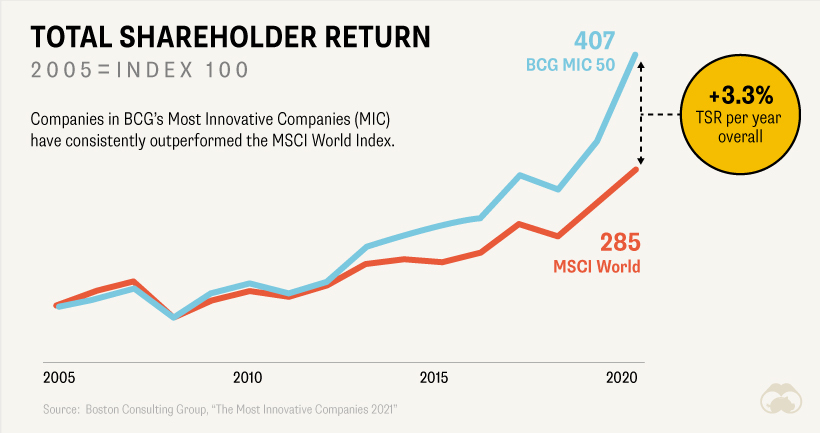
For example, in 2020, a portfolio that was theoretically invested in BCG’s most innovative companies would have performed 17% better than the MSCI World Index—which wasn’t the case back in 2005.
And yet, despite innovation’s value, many companies can’t reap the benefits that innovation offers because they aren’t ready to scale their innovative practices.
The Innovation Readiness Gap
BCG uses several metrics to gauge a company’s “innovation readiness,” such as the strength of its talent and culture, its organization ecosystems, and its ability to track performance.
According to BCG’s analysis, only 20% of companies surveyed were ready to scale on innovation.
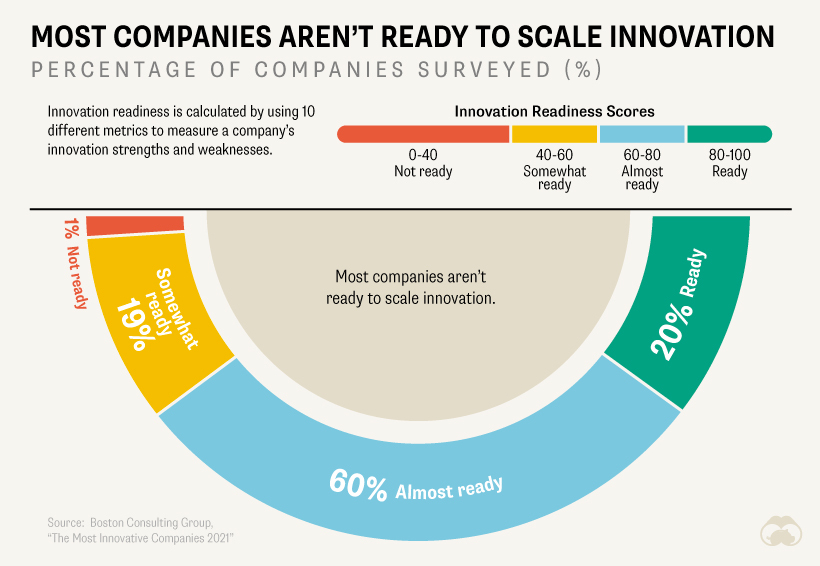
What’s holding companies back from reaching their innovation potential? The most significant gap seems to be in what BCG calls innovation practices—things like project management or the ability to execute an idea that’s both efficient and consistent with an overarching strategy.
To overcome this obstacle, BCG says companies need to foster a “one-team mentality” to increase interdepartmental collaboration and align team incentives, so everyone is working towards the same goal.


